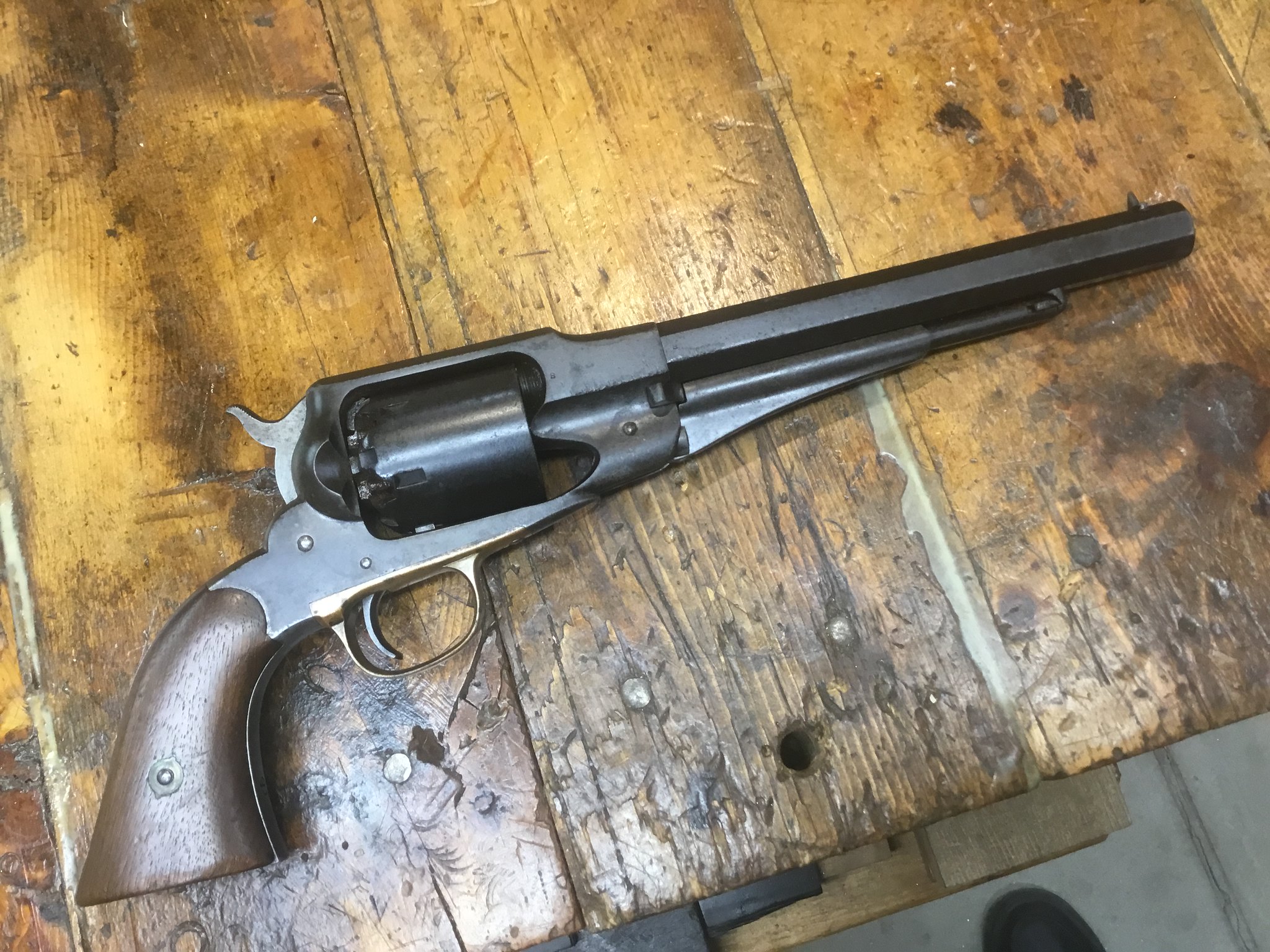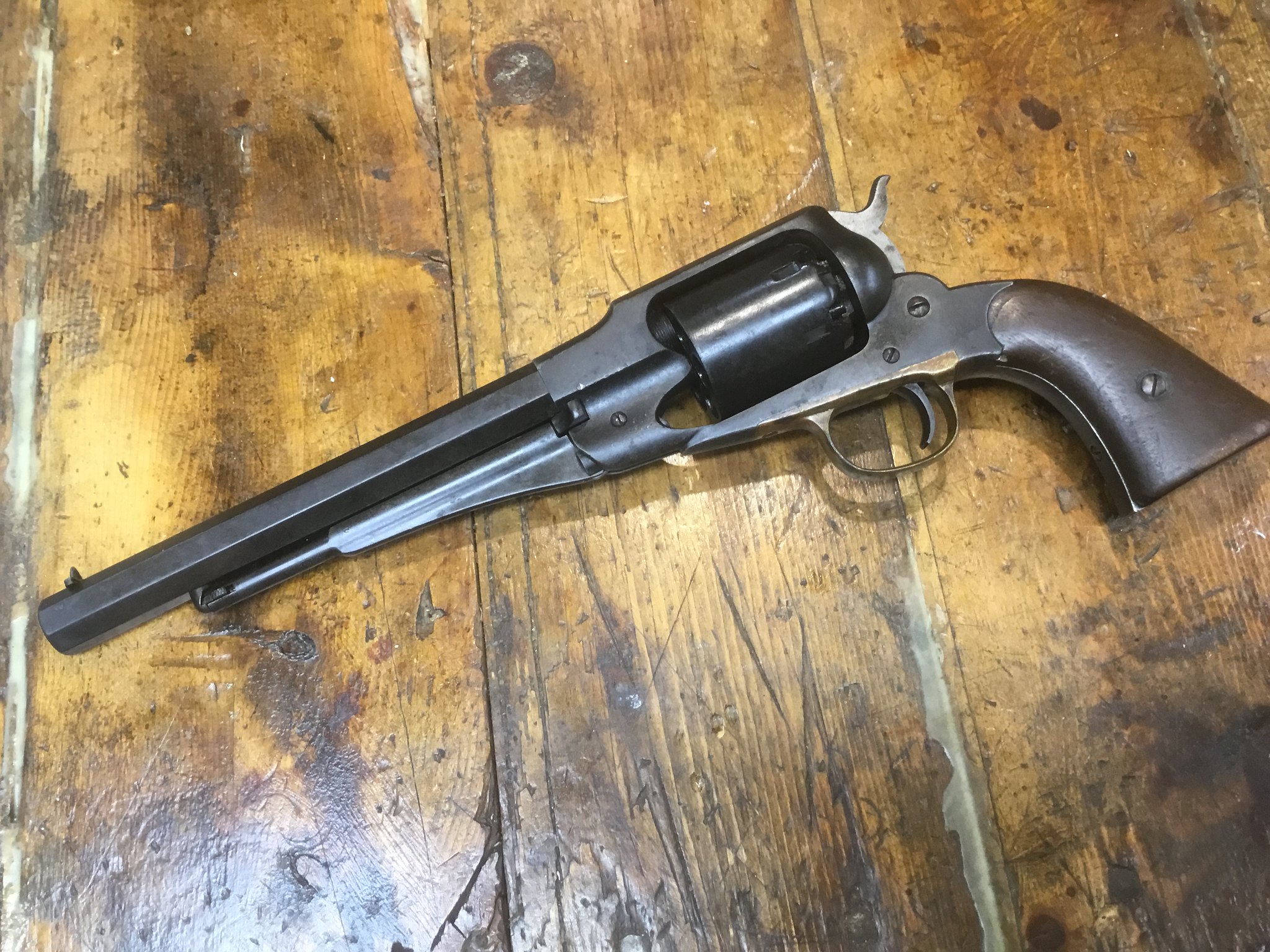I have an old cap and ball revolver my dad left me a long time ago. It's been hanging on the wall but the more I've gotten into black powder the more attractive she looks hanging there. Not sure of make or model there are none on the gun that I can find. The lock and springs are strong and stay at full and half ****. I'm not sure if the bullets are soldered in place or not. The barrel looks rough but there is rifling. What do you guys think? I can supply any more pictures that are needed. I have never restored a gun before either just FYI.



























